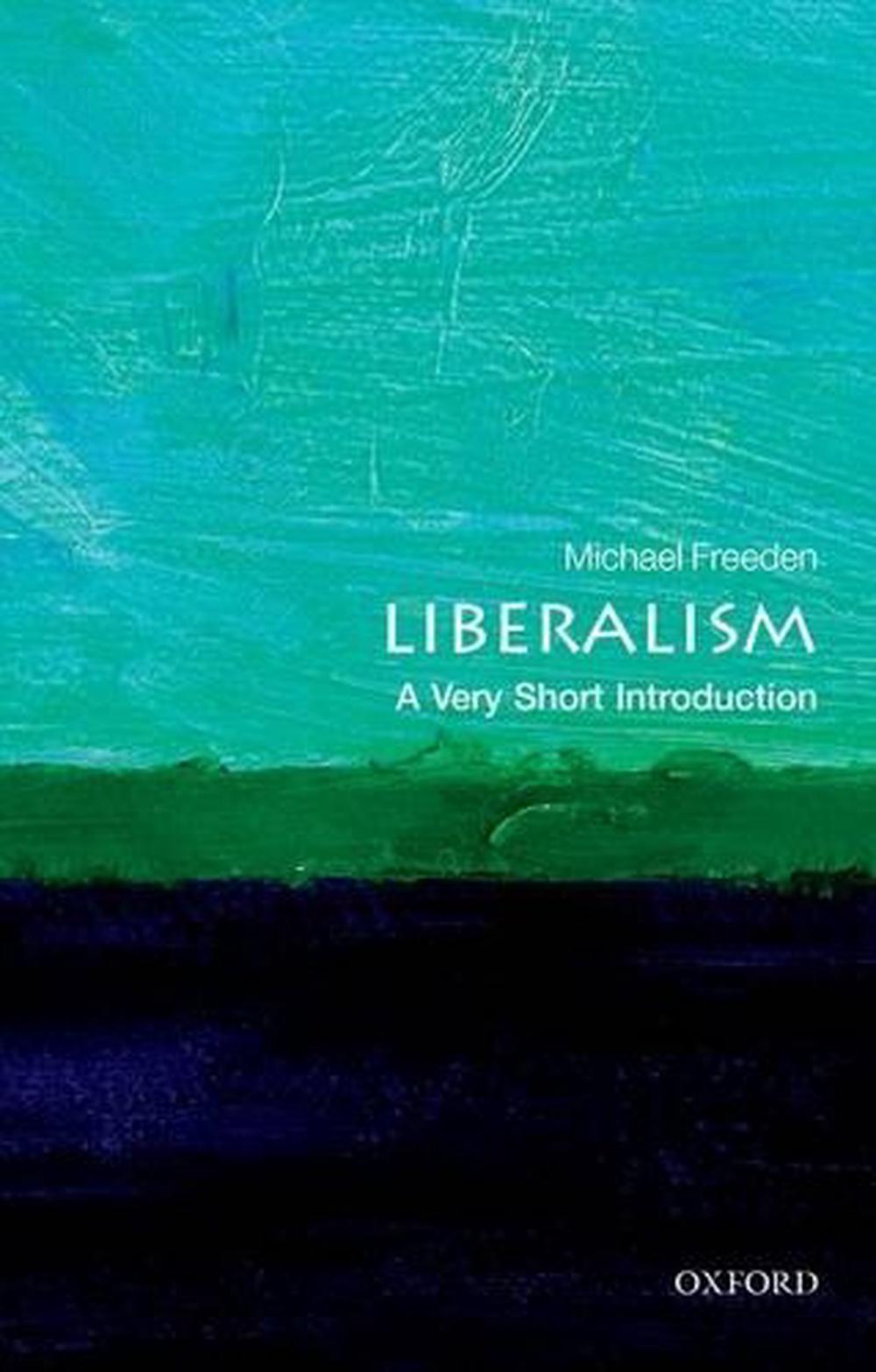
When you click on links to various merchants on this site and make a purchase, this can result in this site earning a commission. Affiliate programs and affiliations include, but are not limited to, the eBay Partner Network.
Liberalism: A Very Short Introduction by Michael Freeden (English) Paperback Boo

- Item No : 135204842081
- Condition : Brand New
- Brand : No brand Info
- Seller : the_nile
- Current Bid : US $15.44
-
* Item Description
-
The Nile on eBay

Liberalism
by Michael Freeden
In this Very Short Introduction, Michael Freeden explores the concept of liberalism, one of the longest-standing and central political theories and ideologies. Combining a variety of approaches, he distinguishes between liberalism as a political movement, as a system of ideas, and as a series of ethical and philosophical principles.
FORMAT
PaperbackLANGUAGE
EnglishCONDITION
Brand New
Publisher Description
Liberalism is one of the most central and pervasive political theories and ideologies, yet it is subject to different interpretations as well as misappropriations. Its history carries a crucial heritage of civilized thinking, of political practice, and of philosophical-ethical creativity. This Very Short Introduction unpacks the concept of liberalism and its various interpretations through three diverse approaches. Looking at itshistorical and theoretical development, analysing the liberal ideology, and understanding liberalism as a series of ethical and philosophical principles, this is a thorough exploration of the concept and practice ofliberalism.ABOUT THE SERIES: The Very Short Introductions series from Oxford University Press contains hundreds of titles in almost every subject area. These pocket-sized books are the perfect way to get ahead in a new subject quickly. Our expert authors combine facts, analysis, perspective, new ideas, and enthusiasm to make interesting and challenging topics highly readable.
Notes
Looks at how liberalism can be understood from a variety of perspectives, including historical, philosophical and ideological viewpoints.
Author Biography
Michael Freeden is Professor of Political Theory at the University of Nottingham and Emeritus Professor of Politics, University of Oxford. His books include The New Liberalism: An Ideology of Social Reform (Oxford, 1978); Liberalism Divided: A Study in British Political Thought 1914-1939 (Oxford, 1986); Ideologies and Political Theory: A Conceptual Approach (Oxford, 1996); Ideology: A Very Short Introduction (Oxford, 2003);Liberal Languages: Ideological Imaginations and 20th Century Progressive Thought (Princeton, 2005); The Political Theory of Political Thinking (Oxford, 2013), and The Oxford Handbook of Political Ideologies (co-edited, Oxford, 2013). He isthe founder-editor of the Journal of Political Ideologies. In 2012 he was awarded the Sir Isaiah Berlin Prize for Lifetime Contribution to Political Studies by the UK Political Studies Association and the Medal for Science of the Institute of Advanced Studies, Bologna University.
Table of Contents
1: A house of many mansions2: The liberal narrative3: Layers of liberalism4: The morphology of liberalism5: The liberal canon6: Philosophical liberalism: Idealizing justice7: Misappropriations, reformulations, disparagements and lapsesReferencesFurther reading
Review
It is hard to imagine a better introduction to liberalism than Freedan's short book and, like all outstanding introductions, it has a lot to offer to those who don't think they really need one. * Journal of Liberal History *
There is much more to ponder over and learn in this slim volume - one of the latest installments in this portable but informative series dwelling on almost every facet of the human condition and the universe - from accounting to laws of thermodynatics, from plants to planets and from Alexander the Great to Nelson Mandela. * Millennium Post *Promotional
Discover the many facets of liberalism as a political movement, a system of ideas, and a series of ethical and philosophical principles.
Long Description
Liberalism is one of the most central and pervasive political theories and ideologies, yet it is subject to different interpretations as well as misappropriations. Its history carries a crucial heritage of civilized thinking, of political practice, and of philosophical-ethical creativity. This Very Short Introduction unpacks the concept of liberalism and its various interpretations through three diverse approaches. Looking at its historical and theoretical development, analysing the liberal ideology, and understanding liberalism as a series of ethical and philosophical principles, this is a thorough exploration of the concept and practice of liberalism.ABOUT THE SERIES: The Very Short Introductions series from Oxford University Press contains hundreds of titles in almost every subject area. These pocket-sized books are the perfect way to get ahead in a new subject quickly. Our expert authors combine facts, analysis, perspective, new ideas, and enthusiasm to make interesting and challenging topics highly readable.
Review Quote
There is much more to ponder over and learn in this slim volume - one of the latest installments in this portable but informative series dwelling on almost every facet of the human condition and the universe - from accounting to laws of thermodynatics, from plants to planets and from Alexander the Great to Nelson Mandela.
Feature
Looks at how liberalism can be understood from a variety of perspectives, including historical, philosophical, and ideological viewpoints
Highlights that liberalism is a dynamic and constantly changing set of principles and concepts
Considers the different methodologies used to express and explore liberalism
Part of the bestselling Very Short Introductions series - over seven million copies sold worldwideDetails
ISBN0199670439Author Michael FreedenYear 2015ISBN-10 0199670439ISBN-13 9780199670437Format PaperbackPublication Date 2015-06-25Place of Publication OxfordCountry of Publication United KingdomBirth 1944DEWEY 320.51Series Very Short IntroductionsMedia BookLanguage EnglishResidence ENKShort Title LIBERALISM A VERY SHORT INTROSubtitle A Very Short IntroductionUK Release Date 2015-06-25NZ Release Date 2015-06-25Illustrations 8 black and white illustrationsPages 160Publisher Oxford University PressImprint Oxford University PressAudience UndergraduateAU Release Date 2015-06-24


-
- The Lost Super Foods
- $ 37.00
- The Self-Sufficient Backyard
- $ 37.00
- A Navy Seals BUG IN GUIDE
- $ 39.00
- Childrens Books Phonics Lot 60
- $ 34.89
















